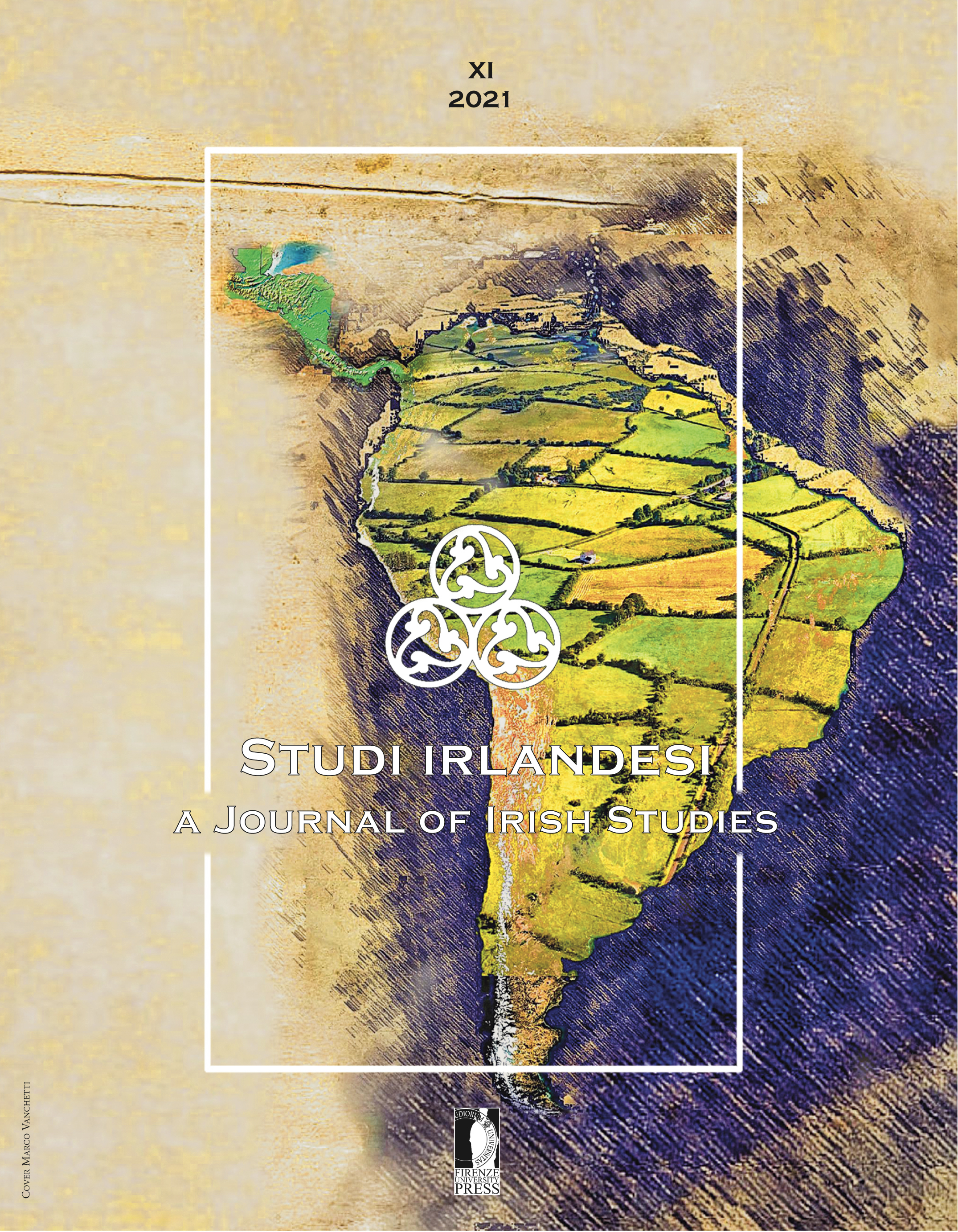Published 2021-06-16
How to Cite
Abstract
This article investigates the “Rotten Prods” (Protestants) through an archival and historiographical survey of the shipyard expulsions of the summer of 1920, when approximately 7,500 Catholics and a sizable minority of Protestant workers (of a Labour/Left-wing persuasion) were physically driven out of the Belfast shipyards and a number of other workplaces. The historical background to the “insult” is discussed, as is racial violence in British cities and industrial unrest in 1919. It charts the development of the original Home Rule-supporting Protestants to the more radical, working-class “Rotten Prods” of a later era. It explains the political dynamics of violence in 1920 and considers the predicament of “Rotten Prods” per se in the early years of Northern Ireland and beyond. An Irish political lineage emerges that is ideologically different to the more moderate, reformist agenda of Protestant Labour supporters who found a ready home in the Northern Ireland Labour Party (and occasionally Ulster Unionism). Finally, it frames and assesses three exemplars of the tradition: Belfast Labour counsellor James Baird (who was expelled from the shipyards in 1920), the Communist Party of Ireland’s Betty Sinclair, and trade unionist Joe Law.


